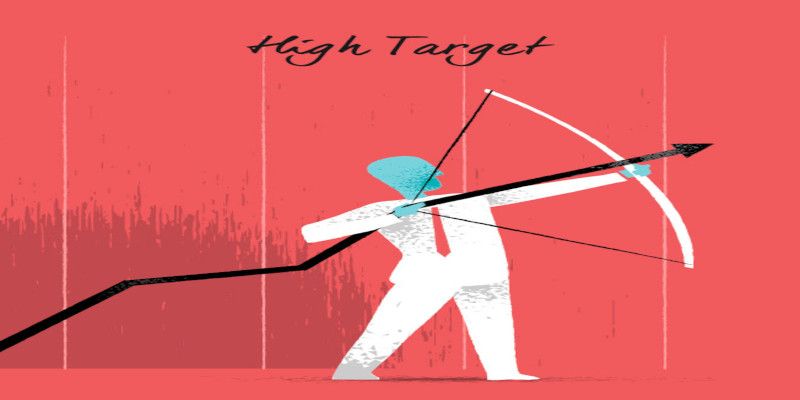Table of Contents
ToggleAiming at a goal can help you to reach that particular, and other related goals, by keeping yourself motivated and focused. Yet, one should be careful of aiming too high, as it can diminish your motivation when unable to reach it.
However, putting the bar too high from time to time can be beneficial due to allowing you to learn from said mistakes, which can set you up for future successes as well.
Let me explain why you should not aim too high all the time to become successful.
Why you should be careful of aiming too high all the time

Small incremental successes lead to large successes over time
We don’t suddenly become good or successful at something. We manage this by performing poorly at first and then making slight, gradual improvements.
Continuously making improvements, no matter how small, will lead to success and becoming good at a given trait or skill over time.
If you’re interested, in another post I explained why writing down your short-term goals can help and allow you to reach your long-term goals.
To keep the motivation high
To keep improving over time, we must try to keep our motivation as high as possible. Because motivation gets us started and excited to improve.
Success experiences, no matter how small, will make us feel good and will make us experience like we are accomplishing something of value. We are of course, even though getting slightly better at a skill or trait might not seem significant, it still adds up over time.
To keep the confidence high

One of the biggest reasons why we shouldn’t aim too high is because it keeps our self-esteem intact due to succeeding.
A high amount of confidence makes us more likely to attempt new things, something challenging and makes us more likely to attempt making improvements.
Success experiences allow us to see that we’re making progress. And even though the progress we’re making is not always large, prolonged small progress allows us to eventually reach our goal in the end.
To keep it fun and exciting

We’re more likely to attempt something and to persevere if we like what we’re doing. If it is fun and exciting to do.
That’s why keeping things as pleasurable as possible has a direct positive effect on becoming better at something and becoming successful over time.
Of course, that’s not to say that there aren’t things that we will have to do that we necessarily regard as fun. Some boring, not particularly exciting things are part of the improvement process that takes place. Not to mention that hedonism in the form of just chasing pleasure isn’t sustainable either.
The goal of all the above points is to gain positive success experiences. These success experiences in return make it more likely for us to attempt challenging things and to persist and improve when times get tough.
All being said and done, not putting your expectations too high is important to prevent burning out, to keep your motivation high, and to prevent giving up as a result.
Are there any benefits for aiming too high from time to time?

Can help to keep our both feet firmly on the ground.
Let’s face it, there are times when all of us need to get a reality check. And what better way to keep our both feet on the ground than being confronted with our failures?
Realizing that we failed lets us become aware that we are not infallible. That even ourselves, no matter how smart and competent we might be, can be subject to failure and overestimating ourselves.
Ignorance and arrogance often go hand in hand and can expose one to failure. That’s why it’s important to get the occasional reality check. To keep us humble and to prevent us from becoming arrogant.
Forces us to be introspective if we want to improve

Having expectations that are too high can lead to failure.
Failure is rarely experienced out of bad luck. Most of the time, there are things we can do better, things we can work on and improve on.
To improve our weaknesses, we must first analyze ourselves and our abilities honestly to figure out what our weaknesses are. To do this, we must look inward, and become introspective.
Exposes our weak spots
Due to our increased necessity for introspection, if we want to improve, we become aware of our often painfully and blatantly exposed weak spots.
Yet, it is regularly these painful exposures of our weaknesses that spur us on to improve.
Conclusion

Like with a lot of things in life, the devil is in the details.
On one hand, having something to aim at can aid you in reaching your goals. However, aiming at goals that are too challenging can be detrimental to your overall motivation and focus.
That’s why it might even be better to aim slightly too low, just below your ceiling. This way, you’re capable of reaching said goals and having successful experiences. This will lead to more and larger successes down the road.
But at the same time attempting challenges that are slightly too difficult might allow you to become even more successful by learning from your failures. And it’s typically the failures we learn the most from and are the ones that define us.



